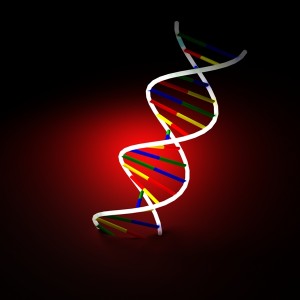Latest News
Research
Family tree cancer risk and genetic testing
Jul 1, 2013

The genetic influence on the development of cancer has been heavily studied; however, it is still impossible to know with certainty whether someone will get cancer or, if they have it, why. But with the right information, experts can estimate an individual’s potential cancer risk based on genetics and can help him/her make important health and lifestyle choices based on that risk.

Examples of hereditary cancers are some types of breast and ovarian cancers, of which the majority are associated with BRCA 1 and BRCA 2 genes. Individuals who carry the BRCA mutation also have higher risks of cervical, uterine, pancreatic, stomach and prostate cancers.
Carriers of the BRCA gene mutation are encouraged to start early cancer surveillance, such as monthly breast self-examination beginning at age 18, clinical breast examination beginning at age 25 and ovarian cancer screening beginning at age 35. As a preventive measure, some BRCA mutation carriers may choose to have risk-reducing surgery, such as prophylactic bilateral mastectomy (removing both breasts), which has been shown to decrease incidence of breast cancer by 90 percent or more. In addition, bilateral oophorectomy (removing ovaries) reduces the risks of both ovarian cancer and breast cancer.The options should of course be discussed with a doctor.
So how do you know if there is a strong genetic susceptibility to cancer in your family? There is likelihood that the cancer in your family is hereditary if:
- More than one person in the family has cancer
- A particular type of cancer has occurred more than once in the family
- Cancer in the family occurred at an early age (under 50)
- Anyone in the family had/has more than one cancer
If you are concerned that there is hereditary risk of cancer in your family, consider consulting your doctor or a genetic counselor. A genetic counselor can conduct genetic testing to see if there is a genetic mutation that you or your family member inherited. Knowledge of family history, combined with genetic test results can help counselors provide guidance about risk for cancer. Genetic testing does not provide absolute certainty of whether someone will or will not have cancer. And note that most of the consumer genetic testing kits available on the market and administered without the guidance of a genetic counselor have not been clinically validated.
Determining your risk for cancer is also complicated, as there are many possible factors that can increase risk. In addition to genetic predisposition, tobacco or alcohol use, obesity, radiation exposure and other factors can increase cancer risk. Often, a combination of factors causes cancer to occur. Even if one inherits some risk, cancer may have resulted from an entirely different process, such as exposure to harmful substances.
About the author
Tzann T. Fang (pronounced “Fong”), M.D., is assistant professor of internal medicine at VCU Massey Cancer Center and the medical director at Community Memorial Healthcenter (CMH) Cancer and Specialty Care on behalf of Massey. He specializes in medical oncology, hematology and bone marrow transplantation.
Written by:
Related News
Research
Robert A. Winn Clinical Investigator Pathway Program welcomes fourth cohort of medical student awardeesJul 8, 2025
Research
“We’re aiming for a cure.” Massey and VIMM researchers achieve potential breakthrough in brain cancer treatmentJun 24, 2025
Research
Massey researchers discover new genetic target that could shape the future of liver cancer treatmentJun 23, 2025

Get access to new, innovative care
Treatments in clinical trials may be more effective or have fewer side effects than the treatments that are currently available. With more than 200 studies for multiple types of cancers and cancer prevention, Massey supports a wide array of clinical trials.

Find a provider
Massey supports hundreds of top cancer specialists serving the needs of our patients. Massey’s medical team provides a wealth of expertise in cancer diagnosis, treatment, prevention and symptom management.
